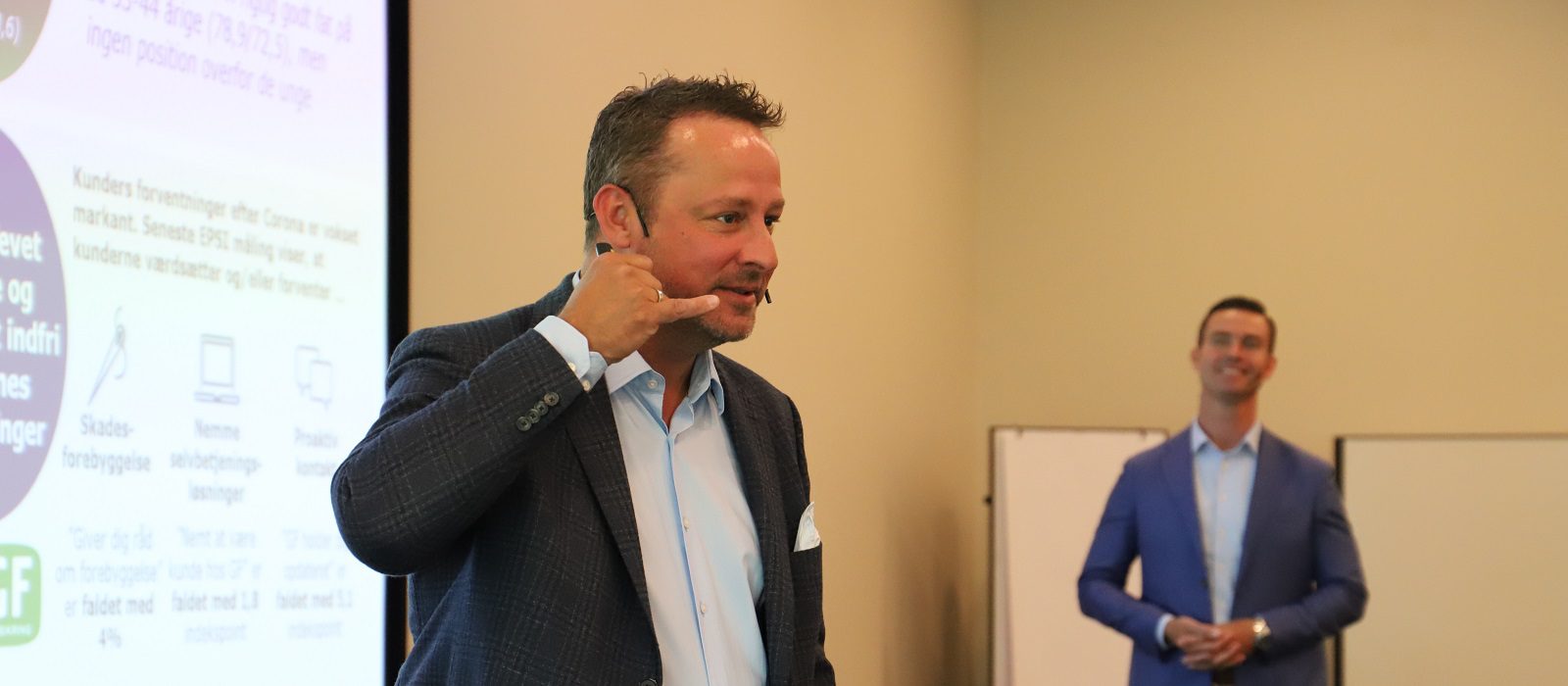The last two weeks have been a whirlwind of commitments and pledges from various Nation States and the business world, but what does it mean for ICMIF members? In this blog, I will try to make sense of the plethora of announcements and distil it down to what action we, as the collective of ICMIF and as individual members, can actually take to play our role in fighting climate change, the most important challenge of the decade.
One thing for sure is that nobody is left in any doubt that this is the most important issue we will have to deal with in our lifetimes. I presented at COP21 in Paris where the feeling was, this is great we are coming together to resolve a global issue, but it was all talk. This time round, as Lord Adair Turner put it, “we lost the first five years, now we need to hit the accelerator”. That sense of urgency and creation of significant momentum was what Christian Mumenthaler, Group CEO, Swiss Re, quoted when talking about the WEF Alliance of 100 global organisations that he co-chairs “peer pressure from business and civil society is creating momentum but we are not there yet”.
This was reflected by other key influencers such as Al Gore who said, “we are at the early stages of the sustainable revolution but to reach this we need a new paradigm and radical transparency”. This direction of travel towards accountability for commitments and pledges was behind a key announcement by the United Nations (UN) Secretary-General António Guterres on the first day of COP26. He announced the establishment of a taskforce to check all net-zero commitments from Nation States, Civil Society and businesses and ensure they actually do deliver on these commitments; and to ensure that there is no more hiding and no more greenwashing.
Building on Guterres’ announcement, Rishi Sunak, the UK Chancellor announced on Finance day (3 November) that all UK financial services institutions will have to have a net-zero commitment by 2023.
These were two excellent, if unexpected, announcements from COP26 in the first week. The direction of travel is now clear, commitments that are public relations stunts and green washing are assigned to history, we now need action, or as Winston Churchill once famously said “the era of procrastination is at an end” and Al Gore quoted “the era of consequences is now”.
The third surprise announcement was the creation of the International Sustainability Standards Board to ensure that ‘climate accounting’ becomes a reality. We already have the Task Force for Climate-related Financial Disclosure (TCFD) that Mark Carney announced at COP21 and that Michael Bloomberg delivered in 2017, that sets the standard for accounting for climate risk in all listed companies. This became more significant in June this year when the G7 announced that TCFD would become mandatory in all seven countries by 2025 at the latest.
Dare I say it, but the accountants are becoming the ‘Climate-heroes’, and this was Prince Charles aim when he set up Accounting for Sustainability (A4S) in 2004. A4S has played a central role at COP26 in raising the profile of the International Sustainability Standards Board (ISSB) which will come under the remit of the International Financial Reporting Standard (IFRS) Foundation.
The announcement of the Glasgow Finance Alliance for Net Zero (GFANZ) by Mark Carney probably grabbed the most headlines over the last two weeks. This carefully worded launch states that USD 130 trillion of assets in financial services is heading towards net-zero commitments. As with all great announcements, this had been trailed with the insurance community since April on various forums such as the International Platform for Climate Finance (IPCF) and the Insurance Development Forum (IDF) both of which ICMIF has been very engaged with.
The benefit of the GFANZ is that it brings together the all the net-zero groups within the United Nations Environment Programme (UNEP), representing asset owners, asset managers, insurers and bankers. This has to be a good thing as it stops duplication. These groups are all industry led with the UNEP being the convening body. The large portion of the USD 130 trillion comes from the 4,300 UN Principles for Responsible Investment (PRI) signatories which represent USD 121 trillion. However, only 61 (of which 28 are insurers) of these signatories (including four ICMIF members) representing USD 10 trillion in assets, have made net-zero commitments under the UN-convened Net-Zero Asset Owner Alliance (NZAOA), which, in my view, is the next stage of action. So, the ‘heading towards’ term still has a long way to go! In addition to the four ICMIF members that have joined the NZAOA, five other ICMIF members have made net-zero commitments, so that gives a total of nine ICMIF members firmly committed to net-zero, representing nearly USD1 trillion in assets.
Other announcements made to the global audience during COP26 include: the creation of the UN-convened Net-Zero Insurance Alliance (NZIA); the Global Risk Modelling Alliance (GRMA), an IDF initiative focused on modelling risks in emerging countries; and the Global Resilience Index Initiative (GRII), which aims to address the data emergency that is contributing to the climate crisis by helping sectors across the global economy quantify the value of building climate resilience and the costs of doing nothing. The GRII will enable asset owners to compare portfolio risks across geographies and hazards, as well as helping countries to prioritise national adaptation investments. These three initiatives have essentially been built by the insurance industry over the last year.
In summary, lots of intent that will hopefully gather momentum and hopefully not be a linear acceleration but as Nigel Topping, High Level Champion for Climate Action COP26, said, will create an ‘ambition loop’.
What does all this mean for ICMIF and its members? It can be broken down in to four areas, investments, underwriting, prevention and reporting. In many of these areas ICMIF members have already started the action phase and are ahead of the industry.
In relation to investments, ICMIF’s Chair Hilde Vernaillen announced at a specially convened UN General Assembly on 26 October 2021 that 40 ICMIF members had USD 576 billion of investments that are aligned to global sustainable frameworks, representing 37% of their combined investments. There is no international insurance comparison yet but, in 2014 at the UN General Assembly, I committed that the whole insurance industry globally would reach USD 400 billion by. Hilde’s announcement at the UN General Assembly last month, highlighted the great news that ICMIF members alone have more than achieved this.
The fact that nine ICMIF members have made net-zero commitments already means that this will continue to increase. Who knows maybe we can reach USD 1 trillion of sustainable investments being made by ICMIF members by 2022; what a great way to celebrate ICMIFs centenary. We will be launching an ICMIF Net-Zero Working Group to share best practices in the new year, when the ICMIF Sustainable Investment Report for 2021 will be published.
The underwriting side is being progressed with the SDG calculator project that we are co-creating with our Supporting Member Swiss Re and (to date) three ICMIF members. The SDG calculator sets key performance measurements for the insurance industry against each of the SDGs and will also act as a benchmark initially for the mutual sector; with the aim of the work ultimately flowing in to the NZIA initiative. We aim to launch the Mutual Insurance SDG calculator at the ICMIF Centenary Conference in Rome in October 2022.
In terms of prevention, the work we are doing with the United Nations Office for Disaster Risk Reduction (UNDRR), supported by the case study report we launched in April 2021 titled From protection to prevention: The role of cooperative and mutual insurance in disaster risk reduction, outlines the seven mechanisms for supporting disaster risk reduction and resilience and how we can align to the Sendai Agreement. This is an industry-leading initiative.
On 22 November 2021, we will launch the ICMIF Disaster Risk Reduction (DRR) Hub, the first-ever insurance-related prevention hub, featuring over 50 case studies. We are already working on pilot Initiatives to rethink the financing of resilience and adaption to bring about systemic change. The soon to be launched ICMIF Prevention Working Group will focus on producing a benchmark to measure the success of the seven mechanisms, again, this will be launched at the ICMIF Conference in Rome.
Lastly, the reporting side, which is crucial for accountability and transparency. We already have 11 members complying with TCFD and this will increase in the next few years. We have 16 members reporting against the SDGs with a further 35 planning to do so in the next few years. The launch last week of the ICMIF SDG Working Group will help share best practices between members so we can all start our SDG journeys. The newly announced ISSB will assist to bring a standard method of reporting sustainability for our purpose-driven members. We need to insure we play an active role in the ISSB development.
I made the decision six months ago not to personally attend COP26. My main reason being that I felt our current strategic initiatives on climate change had already moved into the action stage of their development and therefore we needed to focus on progressing these. COP26, I believe will be shown to be a success despite the fact the commitments made currently only move us to a 2.4-degree world by 2050. This is because the momentum created over these two weeks will accelerate over the next four years, until the next ratcheting up of commitments in 2025.
The difference this time is climate change is no longer seen as just a Nation State problem; they have now been joined by global businesses with all their innovation, resources and investments that are focused on finding solutions. Solutions will not produce linear progression; it will be exponential acceleration as all of society focuses on one challenge. I am pleased to say that ICMIF and its members are not only playing their part, but in many cases, are leading the way.
I leave you with one thought that Barry O’Dwyer, CEO of Royal London put forward at a COP26 debate event on Monday 8 November. The debate, appropriately hosted at the Adam Smith Institute in Edinburgh, was titled Was Adam Smith, founder of modern economics, and author of the ‘Wealth of Nations’ in 1776 misinterpreted to fit our modern capitalistic society? O’Dwyer suggested thatSmith wasn’t misinterpreted but he was misrepresented, as a key part of his series of books, namely the ‘Theory of Moral Sentiment’ has been largely ignored by our shareholder driven economy. This was Adam Smith’s first, and in his view, most important book. In it, Smith asserts that the role of sympathy articulates a fundamental principle which we appear to have overlooked – ‘that for society to function fairly, the invisible hand must be guided by a moral compass’. I put it to you that he was thinking of the mutual sector to deliver this moral compass.






